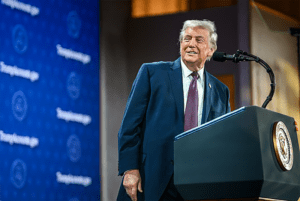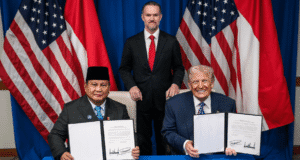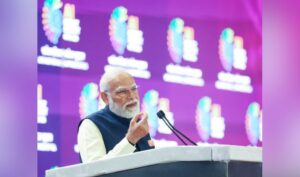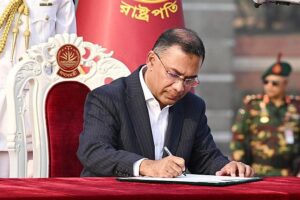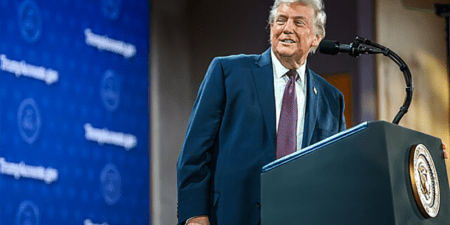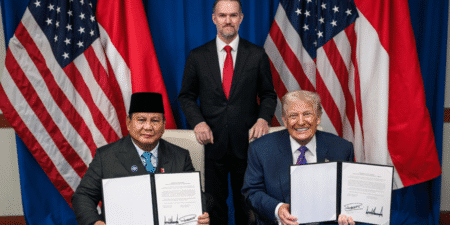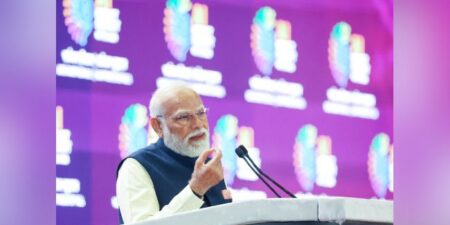
Thailand’s New Cabinet Reflects Eclectic Mix of Technocrats and Party Stalwarts
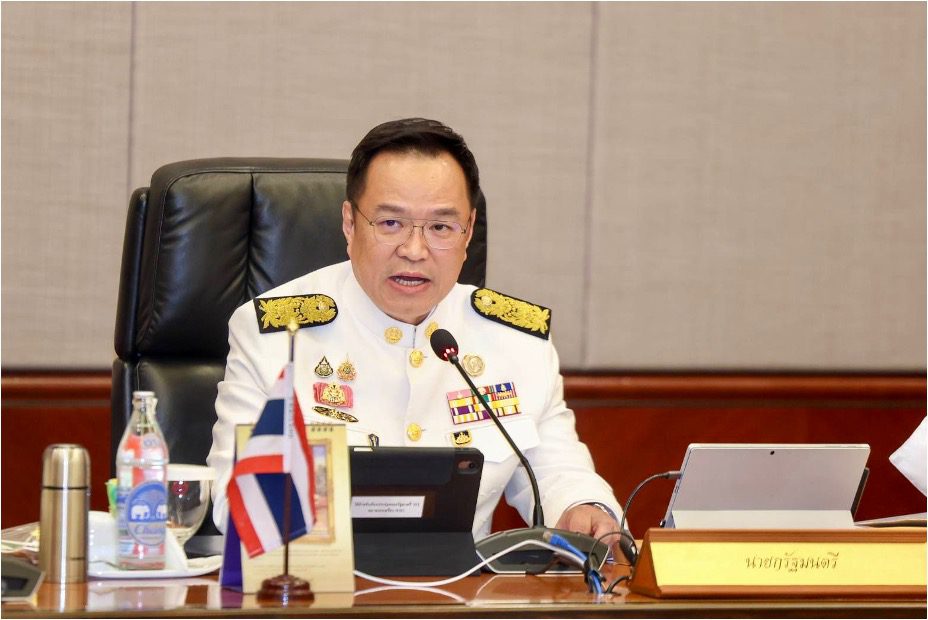
BGA Senior Adviser Thitinan Pongsudhirak wrote an update to clients on Thai Prime Minister Anutin Charnvirakul’s Cabinet.
The composition and size of Prime Minister Anutin Charnvirakul’s 36-member Cabinet suggest he intends to stay in office as long as he can and abide by the government-enabling memorandum of agreement to call an early election only if he must. Notwithstanding a handful of technocrats in the finance, commerce, energy and foreign affairs portfolios, the constitutional maximum cabinet line-up is filled with party bosses, stalwarts and insiders of coalition partners, led by Anutin’s Bhumjaithai party, driven by patronage and nepotism. Policy directions are unlikely to shift significantly from the previous coalition government led by the Pheu Thai party, Bhumjaithai’s erstwhile nemesis, while government stability can be counted on ahead of the next poll due by mid-2027.
Bhumjaithai signed the memorandum of agreement with the opposition People’s Party, the largest camp in Parliament, following the Constitutional Court’s removal of Paetongtarn Shinawatra from the premiership August 29 and the Privy Council’s subsequent rejection of Pheu Thai’s motion to dissolve the House of Representatives for a snap poll (see BGA’s last Thailand update). Its leader and premiership candidate banned from politics for 10 years, the younger and reform-minded People’s Party wants to return the mandate to the people in four months in conjunction with setting up an elected assembly to write a new constitution.
While the four-month period is understood to begin with the new government’s anticipated policy statement to Parliament next month, Bhumjaithai has already received and poached defectors from smaller parties. Starting out with 69 members of Parliament in the 500-member (currently 492) elected chamber, Bhumjaithai’s numbers are expanding in violation of the agreement. Yet as long as Bhumjaithai’s strength remains below the combined forces of People’s Party’s 143 and Pheu Thai’s 141, Anutin will be forced to comply with the agreement, under which a new poll can be expected in the second quarter next year. But if there is a realignment in the interim between Bhumjaithai and Pheu Thai, or if enough of the latter’s factions defect to the former, Anutin will likely serve a full term.
Anutin’s Cabinet makeup indicates intent to stay for patronage gains and pork-barreling projects. One protrusive slot is the Digital Economy and Society Minister Chaichanok Chidchob, son of Bhumjaithai’s patriarch and power broker Newin Chidchob, the influential political patron in northeastern provinces who is effectively party chairman with Anutin as chief executive. Another is Justice Minister Pol. Lt. Gen. Rutthapon Naowarat, a Newin underling from the same region. Other Bhumjaithai notables and Newin loyalists include Deputy Prime Minister and Transport Minister Phiphat Ratchakitprakarn and Deputy Prime Minister Sophon Zaram.
Anutin also doubles as interior minister — the most powerful cabinet post, which oversees provincial administration and attendant bureaucratic promotions supervising electoral machinery and mechanisms. Taking up both big jobs as prime minister and interior minister is highly unusual, and it foretells a centralization of power sufficient to suppress allegations of Newin-associated illegal land encroachments and Bhumjaithai’s manipulation of Senate elections last year. Bhumjaithai is accused of having gamed and set up the appointment of the 200-member upper chamber from internal selections based on open applications. In turn, the Senate has authority over appointments of the Constitutional Court, Election Commission and National Anti-Corruption Commission, the key agencies that have operated in concert to dissolve political parties and ban politicians.
Recruits from smaller and pro-military parties who used to align with Pheu Thai include Deputy Prime Minister and Agriculture Minister Thammanat Prompao, Deputy Prime Minister and Minister of Natural Resources and Environment Suchart Chomklin and Industry Minister Thanakorn Wangboonkongchana. Known as a political fixer and power broker, Thammanat is particularly controversial because of his prior criminal conviction and imprisonment in Australia. Because these cabinet appointments are results of patron-client networks, policy formulation and implementation may be fraught with conflicts of interest and allegations of corruption and graft.
In charge of external security and the border conflict with Cambodia are Defense Minister Gen. Nattaphon Nakpanich and Deputy Defense Minister Lt. Gen. Adul Boonthamcharoen. Their immediate job will be to coordinate between the civilian leadership and military commanders supervising border policy in view of the ongoing dispute with Cambodia. That the Thai military now has border policy control over the civilian government bodes ill for the ceasefire consolidation between Thailand and Cambodia following five day of armed clashes two months ago. Anutin’s early indication is to defer to military authorities, although it will be in Bhumjaithai’s electoral interests to mend relations and reopen crossings to restore border trade and commerce in northeast provinces next to Cambodia.
Anutin’s Cabinet includes a number of experienced hands, namely Deputy Prime Minister and Finance Minister Ekniti Nitithanprapas, Commerce Minister Suphajee Suthumpun, Energy Minister Atthapol Rerkpiboon and Foreign Minister Sihasak Phuangketkeow. Ekniti and Sihasak are career professionals from within the finance and foreign affairs ministries, whereas Suphajee and Atthapol were chief executives of the Dusit Thani Group and the Petroleum Authority of Thailand, respectively. Their appointments lend a semblance of policymaking credibility to Anutin’s Cabinet, but whether these technocrats can overcome powerful vested interests will determine policy traction and forward movement.
Pheu Thai’s earlier fiscal pump-priming and “soft power” policies are now on the backburner. Bhumjaithai’s package to boost consumption features a “half-half” stimulus where the government picks up half of the costs on a range of designated programs. As fiscal space is limited due to rising public debt over the traditional threshold of 60 percent of GDP, the Anutin Cabinet will likely reallocate and work with available budget outlays for electoral advantages. The new government will be looking for so-called “quick wins,” such as the half-half initiative. The hardest and most contentious policy area will be the charter rewrite, which has elicited different proposals from the three largest political parties.
Anutin comes with staunch establishment credentials, meaning he is unlikely to be removed like Paetongtarn or her predecessor, Srettha Thavisin. As long as he is in office, there will likely be political stability, but policy effectiveness to get the economy moving will be mixed and contingent on the new prime minister’s ability and willingness to manage vested interests.
We will continue to keep you updated on developments in Thailand as they occur. If you have comments or questions, please contact BGA Senior Adviser Thitinan Pongsudhirak at thitinan@bowergroupasia.com or BGA Thailand Managing Director Teerasak “Art” Siripant at tsiripant@bowergroupasia.com.
Best regards,
BGA Thailand Team

Dr. Thitinan Pongsudhirak
Senior Advisor
















